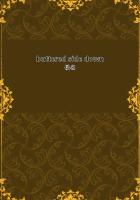Prince Eugene, who was present, and in good humor, said, 'We must sell those horses, they don't speak German; Brender will take care to mount you some way or other.' Prinoe Lichtenstein immediately put a price on my horses; and they were sold on the spot at three times their worth. The Prince of Orange, who was of this Dinner [slightly crook-backed witty gentleman, English honeymoon well over], said to me in a half-whisper, 'Monsieur, there is nothing like selling horses to people who have dined well.'
"After this sale, I found myself richer than I had ever been in my life. The Prince-Royal sent me, almost daily, a groom and led horse, that I might come to him, and sometimes follow him in his excursions. At last, he had it proposed to me, by M. de Brender, and even by Prince Eugene, to accompany him to Berlin." Which, of course, I did; taking Ruppin first. "I arrived at Berlin from Ruppin, in 1734, two days after the marriage of Friedrich Wilhelm Margraf of Schwedt [Ill Margraf's elder Brother, wildest wild-beast of this camp] with the Princess Sophie,"--that is to say, 12th of November; Marriage having been on the l0th, as the Books teach us. Chasot remembers that, on the 14th, "the Crown-Prince gave, in his Berlin mansion, a dinner to all the Royal Family," in honor of that auspicious wedding. [Kurd vou Schlozer, <italic>
Chasot <end italic> (Berlin, 1856), pp. 20-22. A pleasant little Book; tolerably accurate, and of very readable quality.]
Thus is Chasot established with the Crown-Prince. He will turn up fighting well in subsequent parts of this History; and again duelling fatally, though nothing of a quarrelsome man, as he asserts.
CROWN-PRINCE'S VISIT TO BAIREUTH ON THE WAY HOME.
October 4th, the Crown-Prince has parted with Prince Eugene,--not to meet again in this world; "an old hero gone to the shadow of himself," says the Crown-Prince; [<italic> OEuvres (Memoires de Brandebourg), <end italic> i. 167.]--and is giving his Prussian War-Captains a farewell dinner at Frankfurt-on-Mayn; having himself led the Ten Thousand so far, towards Winter-quarters, and handing them over now to their usual commanders. They are to winter in Westphalia, these Ten Thousand, in the Paderborn-Munster Country; where they are nothing like welcome to the Ruling Powers;nor are intended to be so,--Kur-Koln (proprietor there) and his Brother of Bavaria having openly French leanings. The Prussian Ten Thousand will have to help themselves to the essential, therefore, without welcome;--and things are not pleasant. And the Ruling Powers, by protocolling, still more the Commonalty if it try at mobbing, ["28th March, 1735" (Fassmann, p. 547); Buchholz, i. 136.] can only make them worse. Indeed it is said the Ten Thousand, though their bearing was so perfect otherwise, generally behaved rather ill in their marches over Germany, during this War,--and always worst, it was remarked by observant persons, in the countries (Bamberg and Wurzburg, for instance) where their officers had in past years been in recruiting troubles.
Whereby observant persons explained the phenomenon to themselves.
But we omit all that; our concern lying elsewhere. "Directly after dinner at Frankfurt," the Crown-Prince drives off, rapidly as his wont is, towards Baireuth. He arrives there on the morrow;"October 5th," says Wilhelmina,--who again illuminates him to us, though with oblique lights, for an instant.
Wilhelmina was in low spirits:--weak health; add funeral of the Prince of Culmbach (killed in the Battle of Parma), illness of Papa, and other sombre events:--and was by no means content with the Crown-Prince, on this occasion. Strangely altered since we met him in July last! It may be, the Crown-Prince, looking, with an airy buoyancy of mind, towards a certain Event probably near, has got his young head inflated a littie, and carries himself with a height new to this beloved Sister;--but probably the sad humor of the Princess herself has a good deal to do with it. Alas, the contrast between a heart knowing secretly its own bitterness, and a friend's heart conscious of joy and triumph, is harsh and shocking to the former of the two! Here is the Princess's account;with the subtrahend, twenty-five or seventy-five per cent, not deducted from it:--"My Brother arrived, the 5th of October. He seemed to me put out (DECONTENANCE); and to break off conversation with me, he said he had to write to the King and Queen. I ordered him pen and paper.
He wrote in my room; and spent more than a good hour in writing a couple of Letters, of a line or two each. He then had all the Court, one after the other, introduced to him; said nothing to any of them, looked merely with a mocking air at them; after which we went to dinner.
"Here his whole conversation consisted in quizzing (TURLUPINER)whatever he saw; and repeating to me, above a hundred times over, the words 'little Prince,' 'little Court.' I was shocked;and could not understand how he had changed so suddenly towards me. The etiquette of all Courts in the Empire is, that nobody who has not at the least the rank of Captain can sit at a Prince's table: my Brother put a Lieuteuant there, who was in his suite;saying to me, 'A King's Lieutenants are as good as a Margraf's Ministers.' I swallowed this incivility, and showed no sign.















